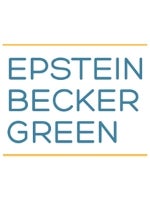The IRS recently released the Tax Exempt and Government Entities FY 2018 Work Plan (the “2018 Work Plan”) which provides helpful information for sponsors of tax-qualified retirement plans about the focus of the IRS’ 2018 compliance efforts for employee benefit plan. While the 2018 Work Plan is a high-level summary, it does address IRS compliance strategies for 2018 and should assist plan sponsors in administering their retirement plans.
The Work Plan provides that for fiscal year 2018, the IRS compliance strategies include examination of plans that:
-
Have transferred their assets or liabilities to another plan as a result of a merger or acquisition;
-
Failed to comply with a non-discrimination test (such as the gateway test, actual deferral percentage test or actual contribution percentage test) or failed to comply with the safe harbor contribution rules for 401(k) plans;
-
Failed to satisfy the minimum age and/or service requirements or met statutory requirements in form but failed eligibility in operation;
-
Failed to make required minimum distributions or distributions in accordance with plan terms;
-
Failed to satisfy the accrual rules under Section 411(b) of the Internal Revenue Code of 1986, as amended (the “Code”);
-
Used an incorrect definition of compensation, resulting in incorrect contributions or forfeitures;
-
Failed to make matching contributions in accordance with plan terms;
-
Failed to withhold elective deferrals in accordance with plan terms (collectively, with items 1-7 above, the “Compliance Matters”).
The Work Plan also notes that the IRS will continue to pursue referrals from sources within and outside of the IRS alleging possible non-compliance by a plan.
With respect to the Compliance Matter noted in item 1 above, the IRS can easily identify a plan that experienced an asset transfer by referring to the plan’s Form 5500 and the related schedules (“Form 5500”). Item 2(l) of Part II on Schedule Hto Form 5500 requires the plan sponsor if to identify the amount of assets transferred during the year to the plan and from the plan. Additionally, Items 4(k) and 5(b) of Part IV on Schedule H and Item 4(j) of Part II on Schedule I ask if any assets were transferred to another plan. If Form 5500 does indicate a transfer of assets to or from the plan, the IRS may consider other factors before determining whether to conduct a compliance examination of the plan. Such factors may include: the number of participants, as compared to prior years and the amount of the asset transfer relative to the total assets of the plan as the IRS may want to examine the plan to determine if a partial termination has occurred.
It may be more difficult for the IRS to identify plans impacted by the other Compliance Matters. Except as noted above regarding item 1, it is not clear if information on the other Compliance Matters will be available on Form 5500. Part VII on Schedule R does consist of six questions on various Compliance Matters ranging from nondiscrimination in a 401(k) plan, to compliance with the coverage requirements under Section 410(b) of the Code, and the date of the plan’s most recent favorable determination letter. Items 15-17 of Part IX on Form 5500-SF contain similar questions on the Compliance Matters. Yet, this information will not be provided to the IRS for the 2016 plan year because the 2016 Instructions for Form 5500 and for Form 5500-SF state that the IRS has decided not to require plan sponsors to respond to these questions for the 2016 plan year.
At this time, it is not known if plan sponsors will be required to respond to these questions for the 2017 plan year or a later plan year. If responses are required, then the IRS will have additional information relating to the Compliance Matters that the IRS can use to determine if a compliance examination of the plan is appropriate.
In any event, the IRS may also receive information on a plan relating to the Compliance Matters from referral sources that could cause the IRS to undertake a compliance examination. For example, the IRS could receive a referral from one of the benefit advisers at the Employee Benefits Security Administration who was contacted by a plan participant about a Compliance Matter or a related matter. Or, the source of a referral could be the IRS team that reviews Form 5500 submissions. For example, a Form 5500 that is significantly different from the prior year Form 5500 could cause a referral to the IRS employee plans team.
Suggested Actions for Plan Sponsors
While there is little that plan sponsors can do to prevent a compliance examination, they can take steps designed to mitigate the impact of an IRS examination. For example, if a plan is involved in a transfer of assets, sponsors should consider the potential consequences of the transfer, including whether the transfer will result in a partial plan termination or whether the transfer requires protection of certain forms with its terms, and then take steps to ensure compliance with IRS requirements relating to those consequences. If a plan sponsor is aware of plan operational failures, the sponsor should consider correcting the operational failures under the IRS Employee Plans Correction Resolution System, which generally provides protection to the plan in the event of an IRS examination. Finally, plan sponsors should check Form 5500 before filing for inadvertent errors and for responses that are significantly different from the responses on the prior year’s Form 5500 to ensure that the current year responses are correct.




 />i
/>i
